|
We're proud to present our annual State of Power report: Coercive World. TNI's tenth report in the series explores the history, structures and changing dynamics of the military, policing and homeland security in the world today and outlines emancipatory visions and ideas to end the violence of the state.
Was this forwarded to you? Sign up here
|
|
Dear reader,
We're proud to present our annual State of Power report. TNI's tenth report in the series explores the history, structures and changing dynamics of the military, policing and homeland security in the world today and outlines emancipatory visions and ideas to end the violence of the state.
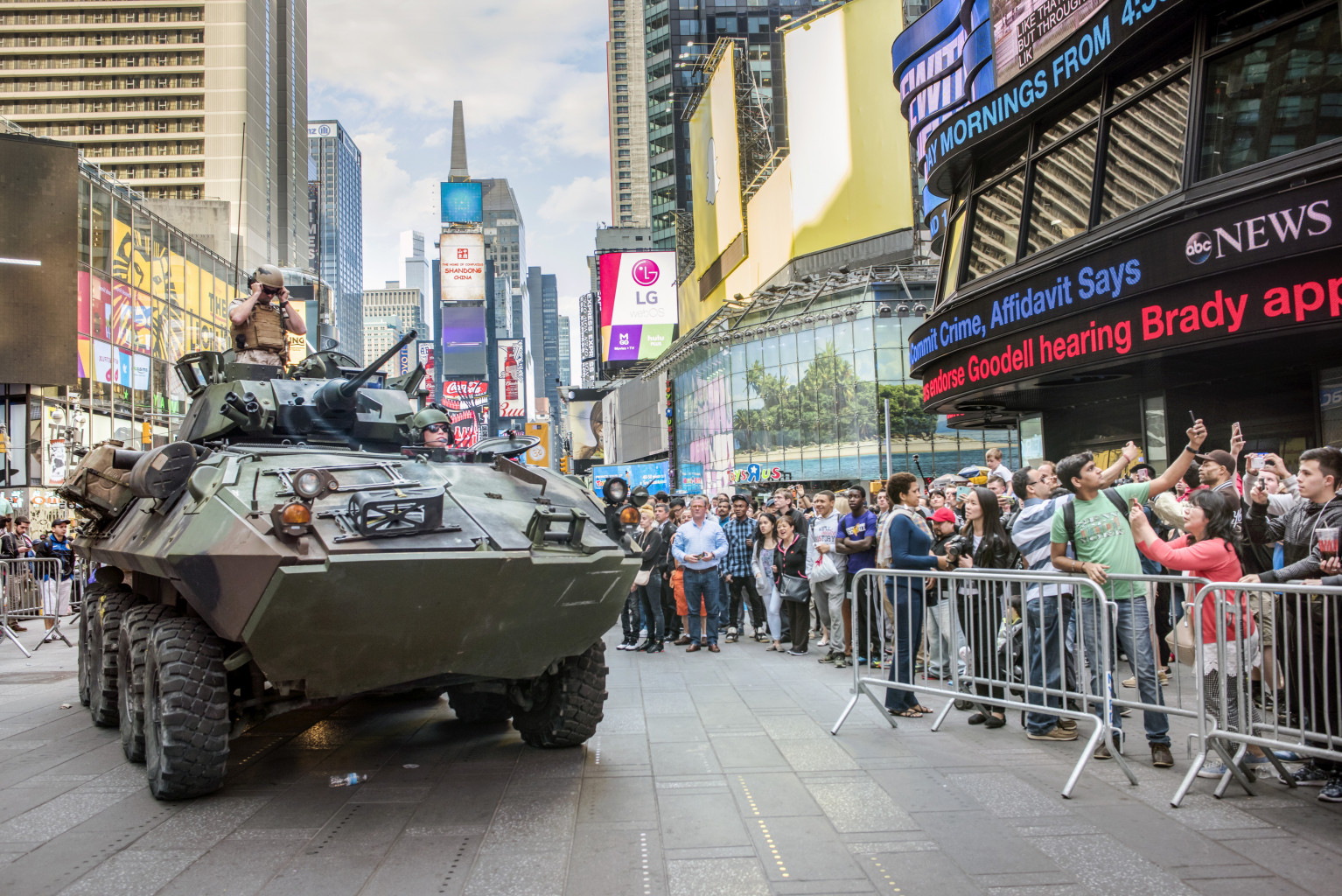
©Nina Berman/ NOOR Caption: USA, New York, 2015, US Marines in Times Square for Fleet Week - demonstration weapons including rifles and arriving in an armored personnel carrier. IG: @nina_berman Twitter: @ninaberman
Infographics 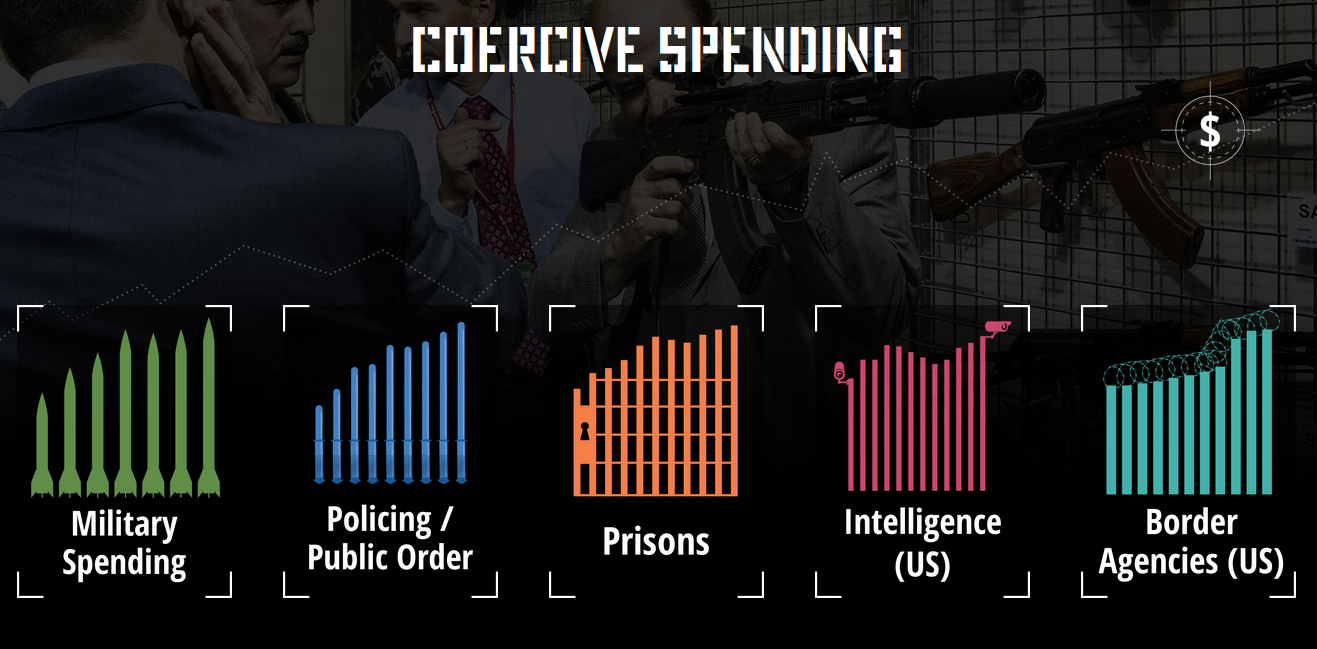 How has spending on state coercion increased since 9/11? Which countries have the largest police forces? Which companies are profiting from the boom in security spending? Have a browse through our infographics and data visualisations. How has spending on state coercion increased since 9/11? Which countries have the largest police forces? Which companies are profiting from the boom in security spending? Have a browse through our infographics and data visualisations.
|
Essays
|
|
Becoming Black: Coercive power, the state and racism in a time of crisis
|
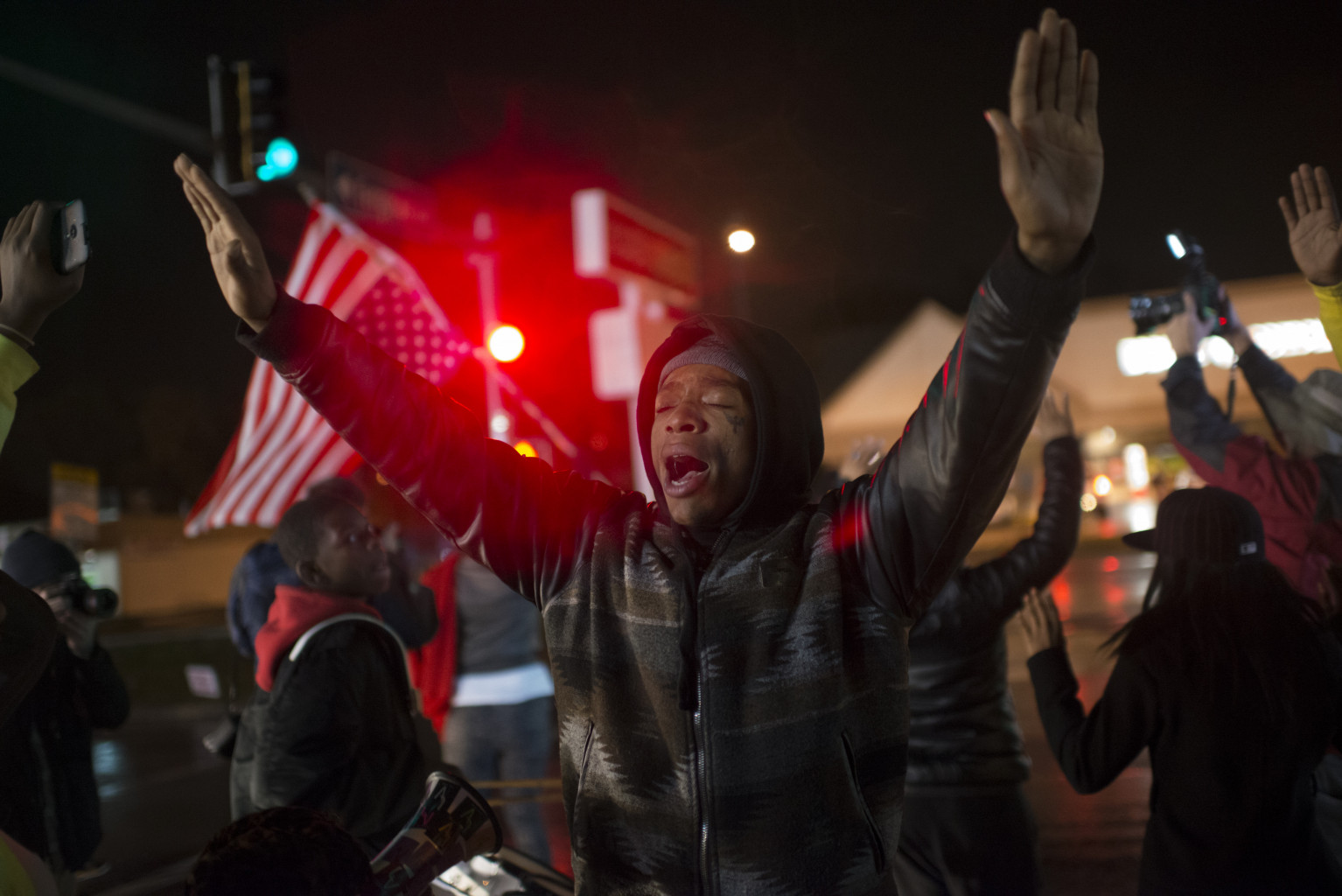 ©Jon Lowenstein / NOOR ©Jon Lowenstein / NOOR |
|
|
|
|
|
Conversation between Olufemi Taiwo and Achille Mbembe
Insightful conversation with two leading Black scholars that helps explain the rise of state violence in recent years, the ways security narratives are becomin[g ever more hegemonic, the roots of coercion in colonialism, the likely impacts of the climate crisis and digitalisation, and the ways social movements can best resist and advance alternative visions of emancipation and justice.
Read more
|
|
|
| No business without enemies: War and the arms trade |
|
|
| |
Jordi Calvo Rufanges
The arms trade is one of the world’s most successful corporate enterprises. Not only has it created an economic system that grows regardless, it has normalised war and security responses to every social crisis.
Read more
|
|
|
| Blurring the monopoly on violence: Private Military and Security Companies and coercive state power |
 ©Kadir van Lohuizen / NOOR ©Kadir van Lohuizen / NOOR |
|
|
|
|
|
Carlos Díaz, Ekaterina Zepnova, Felip Daza, Giulia Campisi and Nora Miralles. Observatorio de Derechos Humanos y Empresas del Mediterráneo (ODHE)
The state’s role in security has been progressively privatised, from the military to the prison system. The result is a shadowy corporate world in which violence is facilitated, accountability is diminished and human rights violations and impunity abounds.
Read more
|
|
|
| From Xinjiang to Mississippi: Terror capitalism, labour and surveillance |
|
|
|
|
Darren Byler
The Chinese state within Xinjiang has forged a form of capitalist frontier-making based on data harvesting and unfree human labour that exploits ethno-racial difference in order to generate new forms of capital accumulation and coercive state power.
Read more
|
|
|
| The 9/11 complex: The political economy of counter-terrorism |
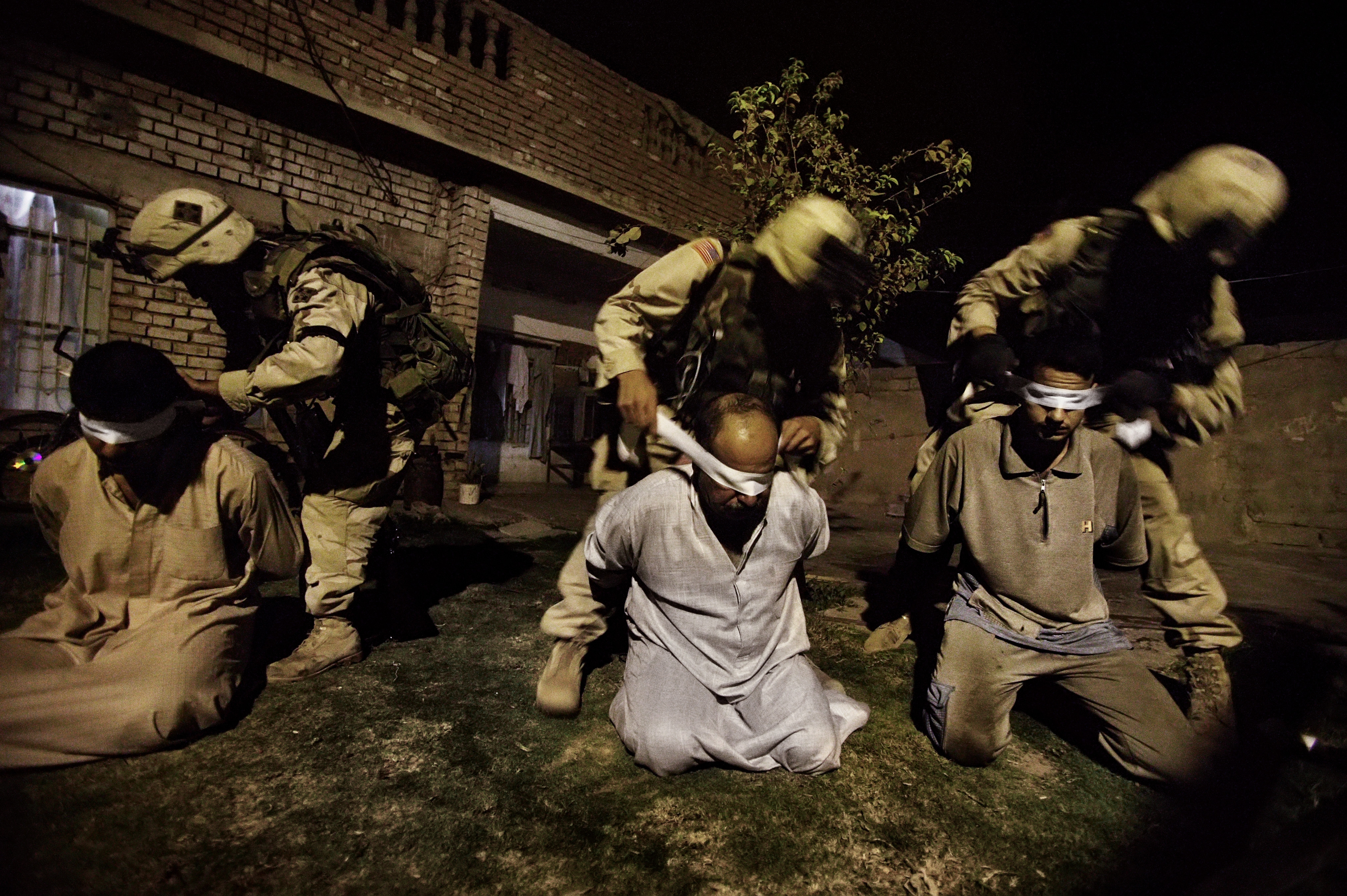 © Yuri Kozyrev / NOOR © Yuri Kozyrev / NOOR |
|
|
|
|
Azfar Shafi
‘Counter-terrorism’ is a set of policies, an ideology, a political project and, increasingly, an industry. Understanding and confronting the underlying political economy of counter-terrorism will be critical to any strategies to address police, state violence and the security industry.
Read more
|
|
|
| The macho state: coercion, patriarchy and resistance |
|
|
|
|
|
Diana Quiroz
When police officers themselves are responsible for so many cases of gender-based violence and when so many cases are never addressed by the judicial system, what does that say about both the institution of the police, the state and their coercive apparatus?
Read more
|
|
|
| Neoextractivism and state violence: Defending indigenous rights in Latin America |
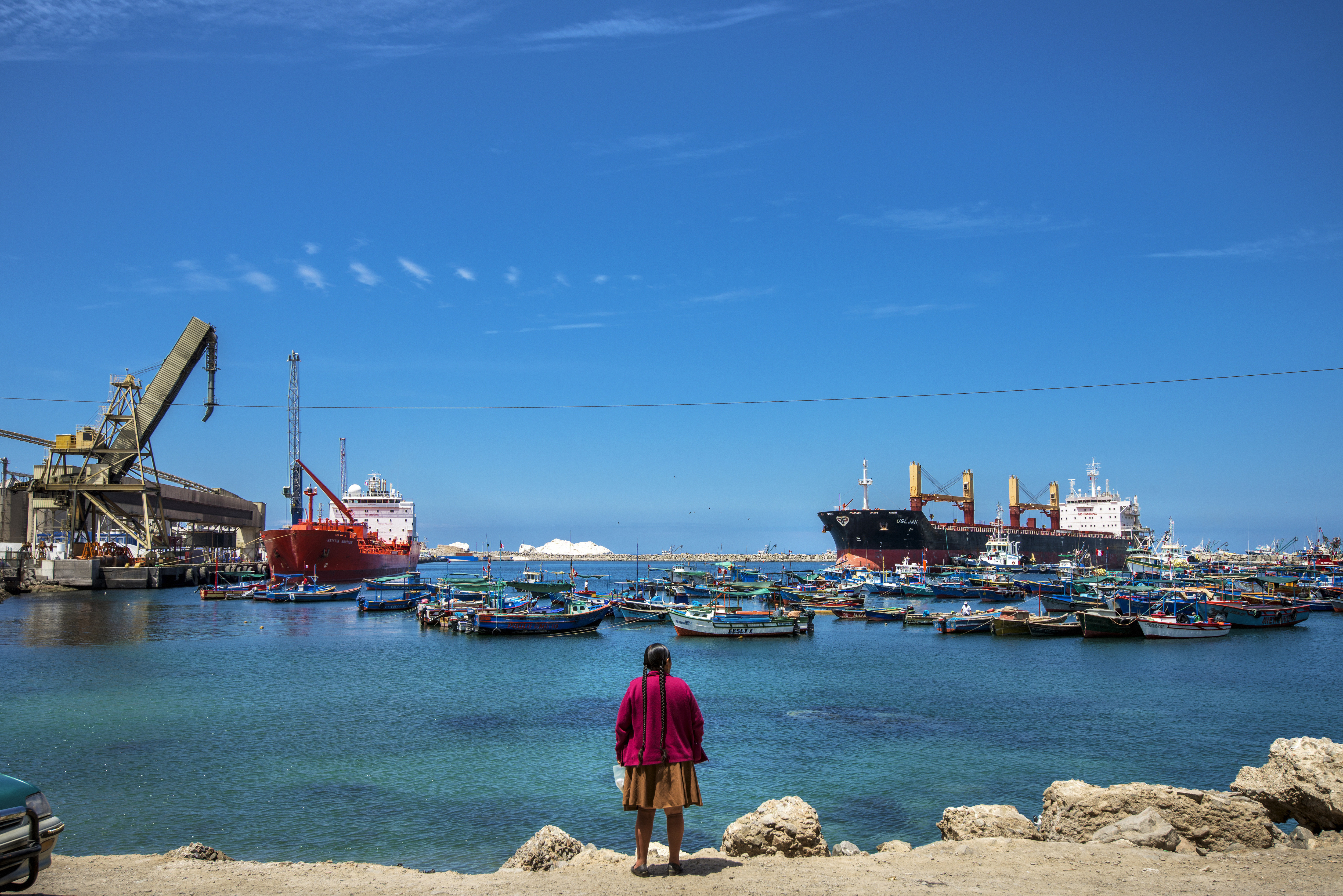 ©Sebastian Liste / NOOR ©Sebastian Liste / NOOR |
|
|
|
|
Aldo Orellana López
The commodities boom in the early 2000s extended the frontiers of extractivism and has relied on state violence, making Latin America one of the most dangerous and deadly places for indigenous peoples and frontline community defenders. Focused on Peru and Colombia, this essay explores dynamics of state violence and strategies for effective resistance.
Read more
|
|
|
| Dismantling the Imperial Boomerang: A Reckoning with Globalised Police Power |
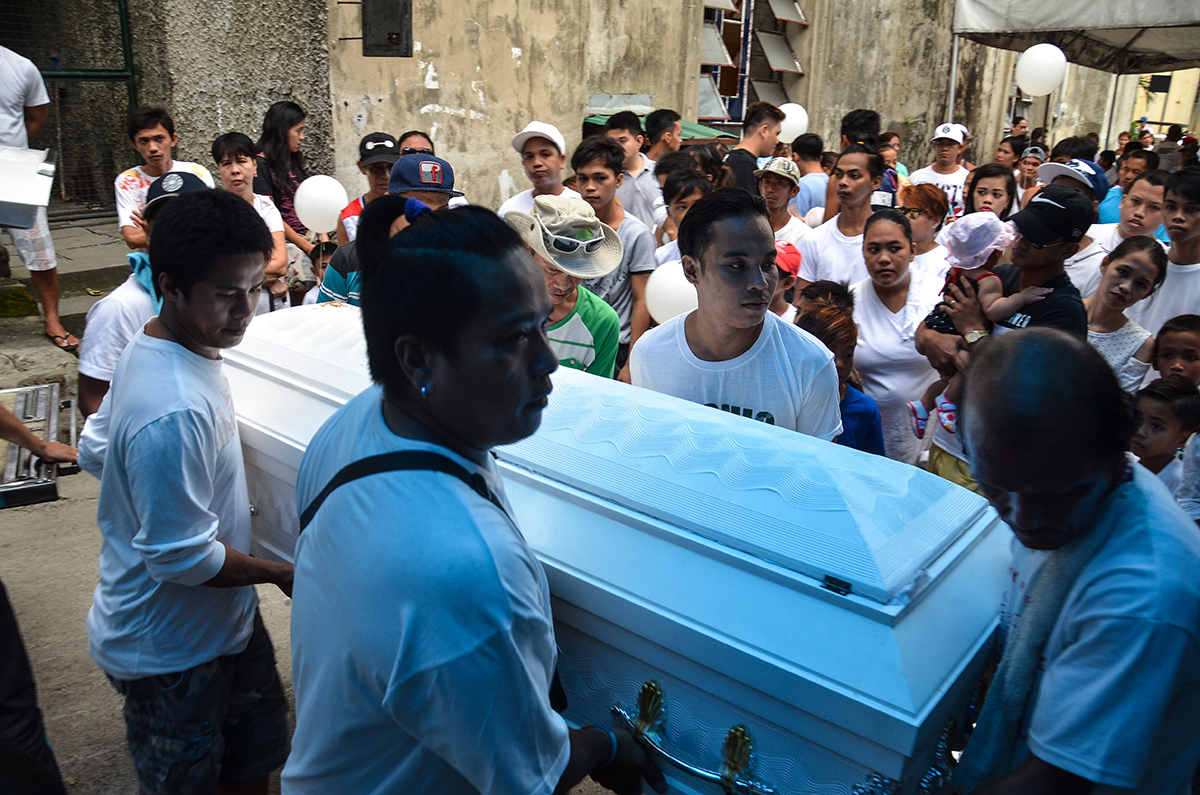 © Lynzy Billing © Lynzy Billing |
|
|
|
|
Joshua M. Makalintal
President Duterte’s ordered killings and wanton use of police violence can not be understood without understanding the ways US imperialism shaped the Philippines, which in turn shaped US and ultimately global policing. Empire’s boomerang demands a stark transnational response of reimagining and transforming the coercive powers of the state.
Read more
|
|
|
| Settled Habits, New Tricks: Casteist Policing Meets Big Tech in India |
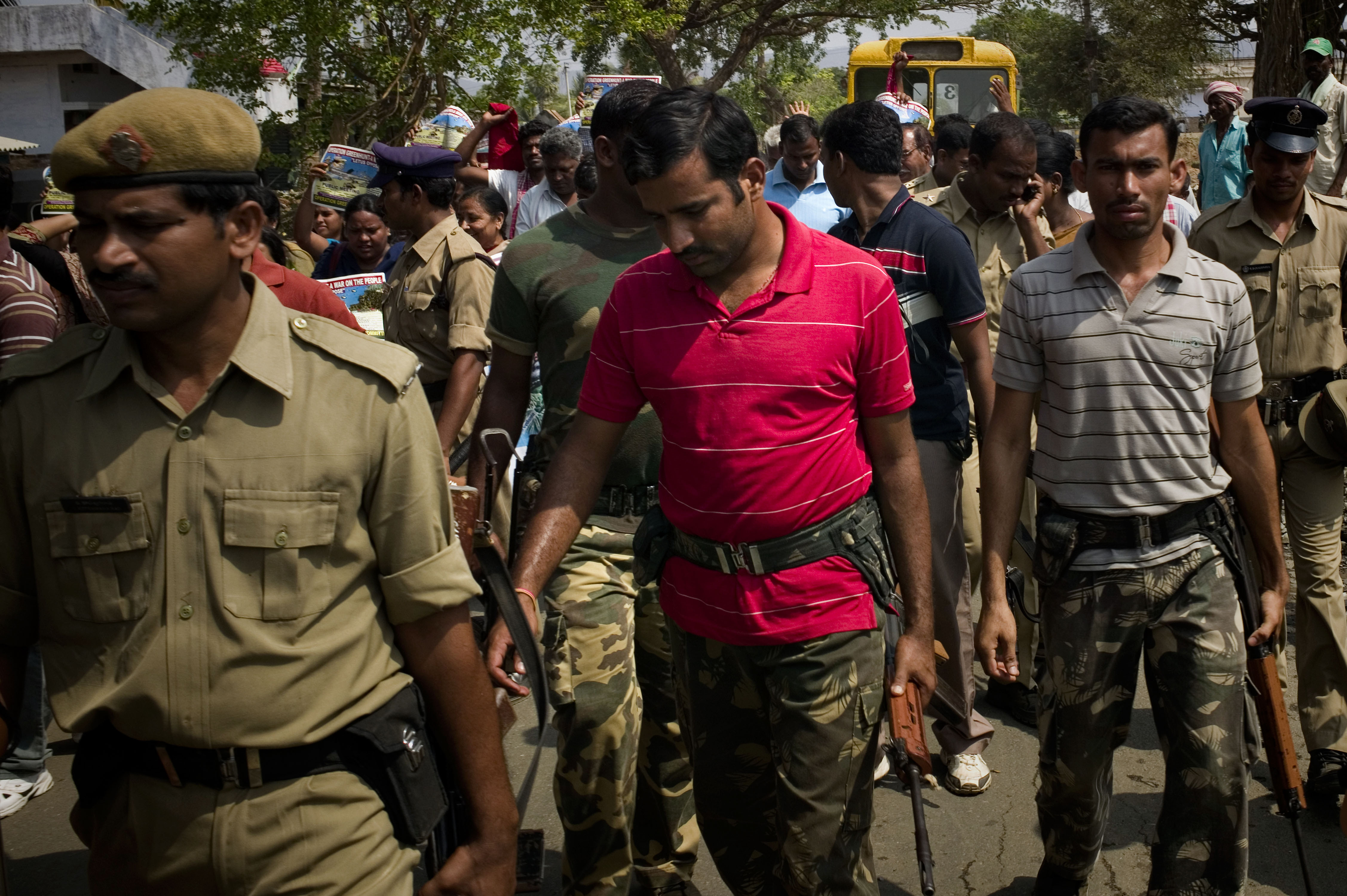 © Stanley Greene / NOOR © Stanley Greene / NOOR |
|
|
|
|
Ameya Bokil, Avaneendra Khare, Nikita Sonavane, Srujana Bej and Vaishali Janarthanan
Big Tech is reinforcing and accelerating a system of caste-based discrimination in India and reinforcing the power and impunity of its police.
Read more
|
|
|
| Abolish National Security |
 © Nina Berman/ NOOR © Nina Berman/ NOOR |
|
|
|
|
Arun Kundnani
Like its criminal-legal system, the US’s global national security infrastructure spreads rather than reduces violence, in ways that are often organised through racism. Extending a politics of abolitionism to national security allows us to articulate new visions of security based on the presence of collective well-being rather than the elimination of ‘threats’.
Read more
|
|
|
| Israel: the Model Coercive State |
|
|
|
|
Alys Samson Estapé
Through its arms exports Israel is shaping the coercive dimensions of states everywhere, bringing the politics of occupation to other international arenas. Those states buying military and security products from Israel are therefore complicit in both the ethnic cleansing of Palestinians, and for importing its brutal politics of coercion.
Read more
|
|
|
|
|
|
Host Shaun Matsheza and guest host Nick Buxton, in conversation with Olufemi Taiwo and Achille Mbembe discuss the history, trajectory, current state and likely future of coercive state power.
Subscribe to State of Power on Spotify , TuneIn or AudioBoom
|
|
|
|
|
|
|
|
Militarism and the police: How our streets became battlefields
Andrew Metheven
Militarism is the glue that underpins violence being meted out to people around the world at the hands of the police and security forces. It will continue to sustain the violent, abusive, racist, oppressive policing that looks to uphold an oppressive and destructive status quo. It affects every one of us, so it is everyone’s concern.
Read
Waging Counterinsurgency: How to dismantle the US coercive apparatus
Nicholas Guarnaccia
The constant waging of counterinsurgency by the US both domestically and on foreign soil has served as the basis of exchange among the institutions of the US and, eventually, the global coercive apparatus.
Read
Expression Meets Repression: Social movements and police violence in Chile
Antonia Hinojoza Del Campo, Constanza Maluenda Castañeda, Daniela Ortega San Martín, Danny Rayman Labrin, Dinka Benítez Piraino, Macarena Martínez Abarca, Natalia Vallejos Gutiérrez
Chile's national police, the Carabineros, have a long and bloody track record of silencing groups demanding their labour, social and economic rights. Their continued existence and violence shows how the Carabineros serve as a key institution for maintaining social structures that perpetuate social injustices that benefit the elite.
Read
Conflict and Development in Northeast India: Stories from Assam
Binita Kakati
Neo-capitalist development in the form of resource extraction in the North Eastern region of India has created a complex field for the contestation of identities, land sovereignty, and conflict.
Read
|
|
|
|
|
|
Join us for the 10 year anniversary of State of Power with this digital gathering and conversation with authors for this years special edition. The state’s coercive power is under unprecedented scrutiny thanks to movements like Black Lives Matter. TNI's tenth flagship State of Power 2021 report explores the history, structures and changing dynamics of the military, policing and homeland security in the world today and outlines emancipatory visions and ideas to end the violence of the state.
Register here.
|
|
|
|
|
|
|
|
|